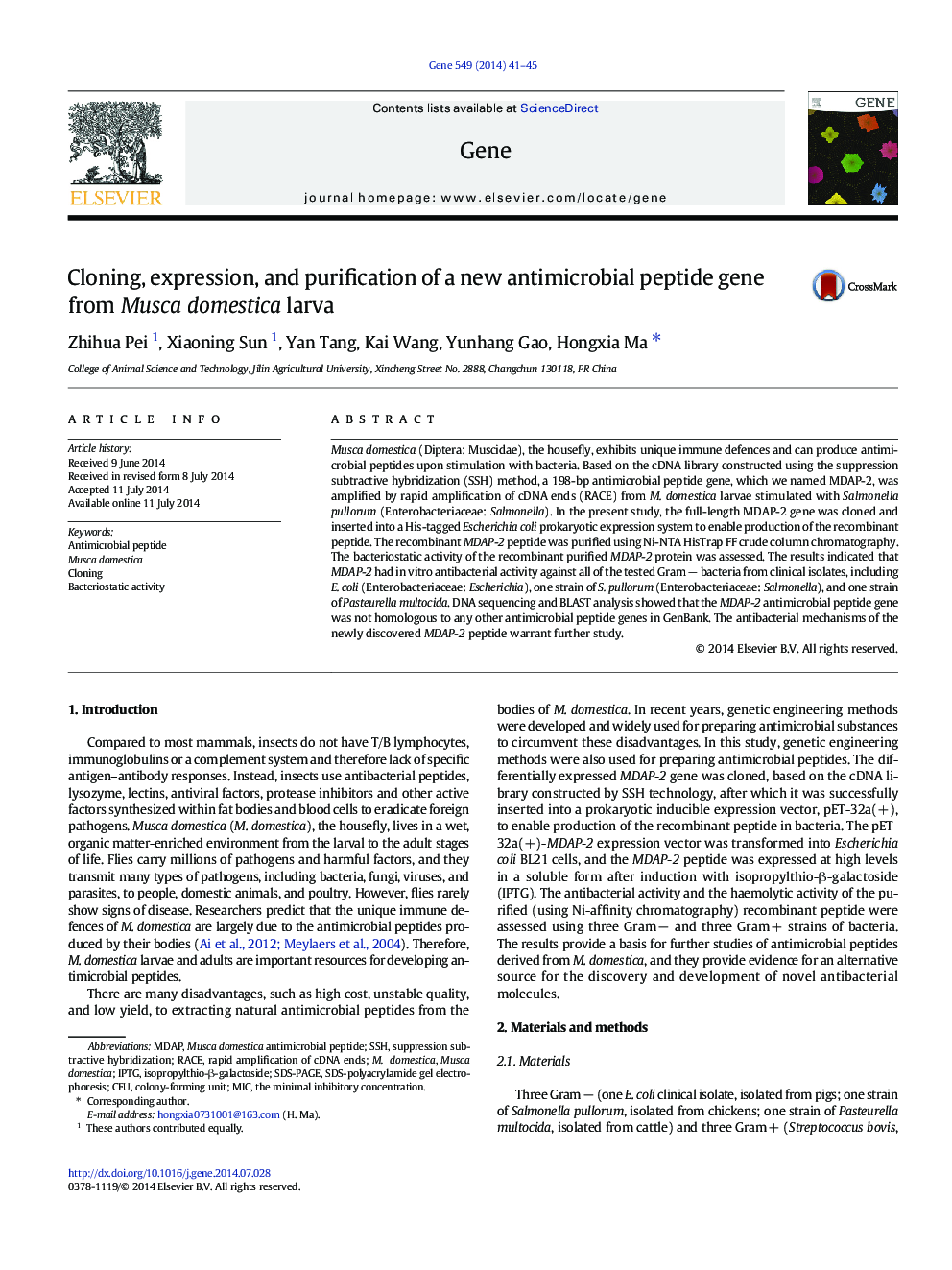| Article ID | Journal | Published Year | Pages | File Type |
|---|---|---|---|---|
| 2816256 | Gene | 2014 | 5 Pages |
•A new antibacterial peptide gene (named MDAP-2) was cloned from Musca domestica larva.•MDAP-2 was not homologous to any other antimicrobial peptide genes in GenBank.•MDAP-2 displayed good antibacterial activity against all the tested Gram − bacteria.
Musca domestica (Diptera: Muscidae), the housefly, exhibits unique immune defences and can produce antimicrobial peptides upon stimulation with bacteria. Based on the cDNA library constructed using the suppression subtractive hybridization (SSH) method, a 198-bp antimicrobial peptide gene, which we named MDAP-2, was amplified by rapid amplification of cDNA ends (RACE) from M. domestica larvae stimulated with Salmonella pullorum (Enterobacteriaceae: Salmonella). In the present study, the full-length MDAP-2 gene was cloned and inserted into a His-tagged Escherichia coli prokaryotic expression system to enable production of the recombinant peptide. The recombinant MDAP-2 peptide was purified using Ni-NTA HisTrap FF crude column chromatography. The bacteriostatic activity of the recombinant purified MDAP-2 protein was assessed. The results indicated that MDAP-2 had in vitro antibacterial activity against all of the tested Gram − bacteria from clinical isolates, including E. coli (Enterobacteriaceae: Escherichia), one strain of S. pullorum (Enterobacteriaceae: Salmonella), and one strain of Pasteurella multocida. DNA sequencing and BLAST analysis showed that the MDAP-2 antimicrobial peptide gene was not homologous to any other antimicrobial peptide genes in GenBank. The antibacterial mechanisms of the newly discovered MDAP-2 peptide warrant further study.
